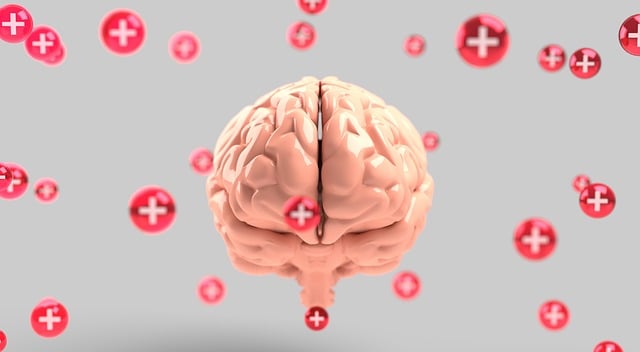Adolescent mental health challenges, fueled by academic pressures, peer dynamics, and identity formation, are on the rise, with anxiety, depression, and gender dysphoria being prominent issues. Therapy for adolescent teens, particularly gender-affirming care, offers specialized support for transgender and non-binary teens, validating their gender identity and reducing stress. This approach, coupled with mental wellness podcasts and public awareness campaigns, equips adolescents with coping strategies and builds resilience. By incorporating gender-affirming care into mental health education, therapists can prevent depression and empower young individuals to actively manage their mental wellness. A holistic approach, including safe spaces, emotional intelligence development, and community outreach programs, ensures teens receive tailored support and develop the skills necessary for a healthy future.
“Mental wellness promotion among adolescents is a critical aspect of their overall development, especially with growing awareness of unique mental health challenges this demographic faces. This article explores various strategies to enhance teenage well-being. We delve into understanding the complexities of adolescent mental health, highlighting the significance of gender-affirming care in supporting teens. Effective therapy approaches are discussed, along with creating inclusive environments.
Furthermore, empowering adolescents through long-term wellbeing strategies is emphasized, offering insights for professionals and parents alike to support this vulnerable yet resilient age group, particularly through gender-affirming care and specialized therapy.”
- Understanding Adolescent Mental Health Challenges
- The Role of Gender-Affirming Care in Teen Support
- Therapy Approaches for Effective Wellness Promotion
- Creating a Supportive Environment for Teens
- Empowering Adolescents: Strategies for Long-Term Wellbeing
Understanding Adolescent Mental Health Challenges

Adolescent mental health challenges are a growing concern in today’s society. Teens face unique pressures, from academic expectations to peer relationships and identity formation, which can significantly impact their emotional well-being. Many young individuals struggle with issues like anxiety, depression, and, increasingly, gender dysphoria, requiring specialized care. Gender-affirming therapy has emerged as a vital approach, offering support for transgender and non-binary teens navigating their identities. This therapeutic method prioritizes the validity of an individual’s self-expression, fostering a sense of belonging and reducing the risk of mental health deterioration.
Understanding these challenges is crucial for promoting healthy development. Emotional well-being promotion techniques, such as therapy, play a pivotal role in equipping adolescents with coping strategies. By addressing underlying issues through evidence-based practices, professionals can help teens manage stress and develop resilience. Moreover, creating accessible resources like mental wellness podcast series production can further engage this demographic, providing them with tools to maintain their mental health and seek support when needed.
The Role of Gender-Affirming Care in Teen Support

In recent years, there has been a growing recognition of the importance of gender-affirming care in supporting teenage mental wellness. This approach, tailored specifically for adolescents identifying as transgender or non-binary, offers a safe and inclusive space within therapy. Gender-affirming care focuses on validating an individual’s gender identity, providing a crucial aspect of stress reduction methods for teens struggling with their mental health. By embracing this care model, therapists can significantly enhance depression prevention efforts among this vulnerable population.
The design of mental health education programs should incorporate gender-affirming care as a core component to address the unique challenges faced by adolescent teens. This not only fosters an environment where young individuals feel understood but also empowers them to actively participate in their mental wellness journey. Through such initiatives, we can ensure that therapy for adolescent teens becomes more effective and tailored to their diverse needs, ultimately contributing to improved overall mental health outcomes.
Therapy Approaches for Effective Wellness Promotion

Promoting mental wellness among adolescents and teens is a multifaceted approach that often involves various therapy techniques. One effective strategy gaining traction is gender-affirming care, which has shown promising results in supporting young individuals navigating their identity. This therapeutic model creates a safe space for teens to express themselves authentically, fostering self-acceptance and reducing anxiety related to gender dysphoria. By providing tailored support, it enhances resilience and overall emotional well-being.
In addition to individual therapy, public awareness campaigns play a vital role in mental wellness promotion. These campaigns aim to destigmatize conversations around mental health, encouraging open dialogue. Through education and empowerment, they facilitate the development of coping mechanisms and build resilience, enabling teens to navigate life’s challenges with greater ease. Emphasizing emotional healing processes, these initiatives contribute to a holistic approach, ensuring adolescents receive the necessary tools to thrive.
Creating a Supportive Environment for Teens

Creating a supportive environment for teen mental wellness is paramount in their development and overall well-being. Schools, homes, and communities should aim to provide safe spaces where adolescents feel accepted and understood. Therapy for adolescent teens, particularly gender-affirming care, plays a significant role in addressing unique challenges they face, such as body image issues, identity struggles, and peer pressure. This support can significantly boost their resilience and emotional intelligence, empowering them to navigate life’s complexities.
Implementing community outreach programs focused on mental health awareness can further strengthen these efforts. By educating teens about anxiety relief techniques and fostering open conversations about emotional well-being, we can create a network of peers who are equipped to support each other. This holistic approach ensures that young individuals not only receive professional help but also develop coping strategies tailored to their individual needs within a supportive ecosystem.
Empowering Adolescents: Strategies for Long-Term Wellbeing

Empowering adolescents to take charge of their mental wellness is a key strategy for fostering long-term wellbeing. This involves providing them with the tools and resources necessary to navigate life’s challenges effectively. Therapy for adolescent teens, particularly gender-affirming care, plays a pivotal role in this process by creating safe spaces where young individuals can explore their identities, process difficult emotions, and learn healthy coping skills.
Emotional well-being promotion techniques, including emotional intelligence development, are integral to this empowerment. By encouraging adolescents to identify and express their feelings, understand others’ perspectives, and manage stress constructively, they gain valuable coping skills that support their mental resilience. This proactive approach ensures that teens are equipped to thrive not just in the present but also as they navigate the complexities of adulthood.
Promoting mental wellness among adolescents is a multifaceted approach that involves understanding their unique challenges, providing gender-affirming care, and employing effective therapy strategies. By creating supportive environments and empowering teens with long-term wellbeing strategies, we can significantly improve their mental health outcomes. Specifically, integrating therapy for adolescent teens alongside gender-affirming care has proven to be a game changer in navigating the complex landscape of teenage mental health.










